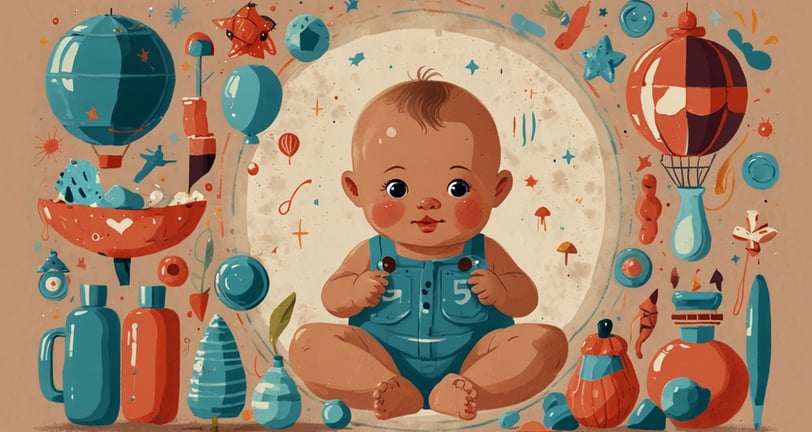Unveiling the Enchantment – 7 Intriguing Baby Fun Facts
Discover fascinating insights into the world of babies with these 7 baby fun facts that will leave you in awe. From their remarkable senses to surprising abilities, this blog unveils the enchantment of infancy in bite-sized snippets.


Babies are truly fascinating little humans, and the more I learn about them, the more I’m amazed by the complexity of early childhood development. From their incredible reflexes to their blossoming personalities, there’s just so much to discover. As a parent or caregiver, I’ve found that understanding even a few fun facts about babies can really deepen the way I connect with them. It’s not just about care—it’s about curiosity, wonder, and growth. So, let’s dive into these seven intriguing facts and appreciate the beautiful mystery that is infancy.


1- Babies Have a Strong Sense of Taste: Contrary to popular belief, babies are not born with a blank palate. In fact, they possess a well-developed sense of taste from birth, preferring sweet flavors and displaying aversions to bitter tastes. This sensitivity to taste helps babies navigate their food preferences as they transition to solid foods.
2- Babies Sleep A Lot: New parents often marvel at the amount of time babies spend sleeping. In the early months of life, babies require extensive periods of sleep to support their rapid growth and brain development. While their sleep patterns may seem erratic to adults, they follow a natural rhythm that gradually becomes more regulated as the baby matures.
3- Babies Communicate Through Crying: Crying is the primary means of communication for babies, serving as a signal for various needs such as hunger, discomfort, or fatigue. While it may be challenging for parents to decipher the underlying cause of their baby's cries, learning to respond sensitively can foster a sense of security and trust in the parent-child relationship.


4- Babies Sleep A Lot: New parents often marvel at the amount of time babies spend sleeping. In the early months of life, babies require extensive periods of sleep to support their rapid growth and brain development. While their sleep patterns may seem erratic to adults, they follow a natural rhythm that gradually becomes more regulated as the baby matures.
5- Babies Communicate Through Crying: Crying is the primary means of communication for babies, serving as a signal for various needs such as hunger, discomfort, or fatigue. While it may be challenging for parents to decipher the underlying cause of their baby's cries, learning to respond sensitively can foster a sense of security and trust in the parent-child relationship.
6- Babies Have Unique Personalities: Despite their small size, babies exhibit distinct personalities from an early age. Some babies may be naturally more outgoing and adventurous, while others may be more reserved and observant. Understanding and appreciating these individual differences can help parents tailor their caregiving approach to suit their baby's temperament.
7- Babies Learn Through Play: Play is the primary mode of learning for babies, allowing them to explore their environment, develop essential motor skills, and make sense of the world around them. Simple activities such as tummy time, sensory play, and interactive games provide valuable opportunities for babies to engage their senses and stimulate their cognitive development.
The more I learn about early childhood development, the more I’m in awe of just how remarkable the journey of infancy truly is. From those tiny, instinctive reflexes to their ever-growing curiosity, babies constantly show us what an incredible time of life this is. By taking the time to understand these fun and fascinating facts, I feel like I can show up for them in more meaningful ways—supporting, nurturing, and appreciating every little milestone. It’s a journey I’m grateful to be part of, one sweet moment at a time.
